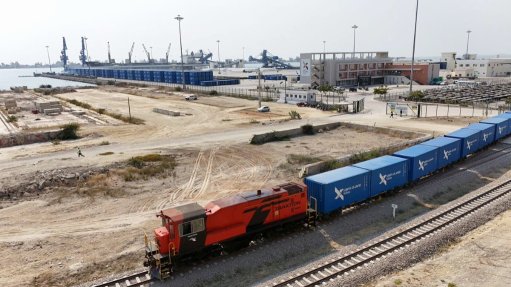Better English, better GDP?
Conventional wisdom has it that our kids attaining a high degree of proficiency in the STEM subjects of science, technology, engineering and mathematics is a must if this country is to be economically competitive in a world that is becoming more technologically advanced.
There shouldn’t be any argument with that: any credible forecast of the jobs of the future – a future that is not far off – points to strong demand for software developers, data scientists, machine learning experts, engineers and cloud computing professionals. All these require a solid grasp of the STEM subjects.
That said, proficiency in good old English shouldn’t be dismissed as a noncontributor to a country’s economic success, especially if that country is an emerging-economy country – at least according to Christopher McCormick, one of the higher-ups at EF Education First, a Swiss-based international company that specialises in language training, educational travel and academic degree programmes. He swears that emerging-economy countries with higher levels of English language proficiency have better economies. This is not a figment of his imagination but is founded on research conducted by EF Education First in 2013, the results of which were published in the prestigious Harvard Business Review.
The study entailed a survey of about 60 emerging economies where English is not the official language, including the likes of Brazil, China, Guatemala, India, Norway, Saudi Arabia and Singapore. It showed a direct correlation between the English proficiency of a country and the economic performance of that country, with metrics such as gross national income and gross domestic product (GDP) increasing as a population’s mastery of the language improves.
At the individual level, those with better English skills than the average person in their country were found to be earning salaries that were 30% to 50% higher than the mean. An explanation for this is that people who are fluent in English, the lingua franca of global business, can tap into opportunities at home and abroad more easily than those who are not.
It may have been ten years since the EF Education First study appeared in the Harvard Business Review, but the idea that good English translates to good economies still finds traction. One of the latest proponents is Zandre Campos, an Angolan entrepreneur who heads up ABO Capital, an international investment firm that seeks out opportunities in emerging markets across Africa. He contended in a recent opinion piece that the adoption of English would turbocharge the economic development of Angola, a Portuguese-speaking country, by making it easier for foreign companies to do business in the south-western African country and for Angolan companies to expand into international markets.
Campos further argued that Angola, which had the lowest economic development score and ranked among the bottom countries on the latest EF Education First English Proficiency Index, based on a survey of 105 countries, would improve its economic lot by rolling out English language education.
In his view, anglicising Angola would also make cross-border trade and investment in the region much easier, since two of the country’s neighbours, Namibia and Zambia, use English extensively.
Campos points to Rwanda, a former Francophone country which has adopted English as the official language and has, since 2011, made English-medium instruction in the country’s schools compulsory from the fourth year. World Bank statistics show that the country’s economy grew at an average of 7.2% a year from 2010 to 2019, with per capita GDP having increased at about 5% a year during the same period, making the Rwandan economy one of the fastest growing in Africa. This commendable performance, Campos says, is at least attributable to the Rwandan economy’s being more integrated into the English-dominated global economy. Maybe he has a point.
Article Enquiry
Email Article
Save Article
Feedback
To advertise email advertising@creamermedia.co.za or click here
Comments
Press Office
Announcements
What's On
Subscribe to improve your user experience...
Option 1 (equivalent of R125 a month):
Receive a weekly copy of Creamer Media's Engineering News & Mining Weekly magazine
(print copy for those in South Africa and e-magazine for those outside of South Africa)
Receive daily email newsletters
Access to full search results
Access archive of magazine back copies
Access to Projects in Progress
Access to ONE Research Report of your choice in PDF format
Option 2 (equivalent of R375 a month):
All benefits from Option 1
PLUS
Access to Creamer Media's Research Channel Africa for ALL Research Reports, in PDF format, on various industrial and mining sectors
including Electricity; Water; Energy Transition; Hydrogen; Roads, Rail and Ports; Coal; Gold; Platinum; Battery Metals; etc.
Already a subscriber?
Forgotten your password?
Receive weekly copy of Creamer Media's Engineering News & Mining Weekly magazine (print copy for those in South Africa and e-magazine for those outside of South Africa)
➕
Recieve daily email newsletters
➕
Access to full search results
➕
Access archive of magazine back copies
➕
Access to Projects in Progress
➕
Access to ONE Research Report of your choice in PDF format
RESEARCH CHANNEL AFRICA
R4500 (equivalent of R375 a month)
SUBSCRIBEAll benefits from Option 1
➕
Access to Creamer Media's Research Channel Africa for ALL Research Reports on various industrial and mining sectors, in PDF format, including on:
Electricity
➕
Water
➕
Energy Transition
➕
Hydrogen
➕
Roads, Rail and Ports
➕
Coal
➕
Gold
➕
Platinum
➕
Battery Metals
➕
etc.
Receive all benefits from Option 1 or Option 2 delivered to numerous people at your company
➕
Multiple User names and Passwords for simultaneous log-ins
➕
Intranet integration access to all in your organisation


















